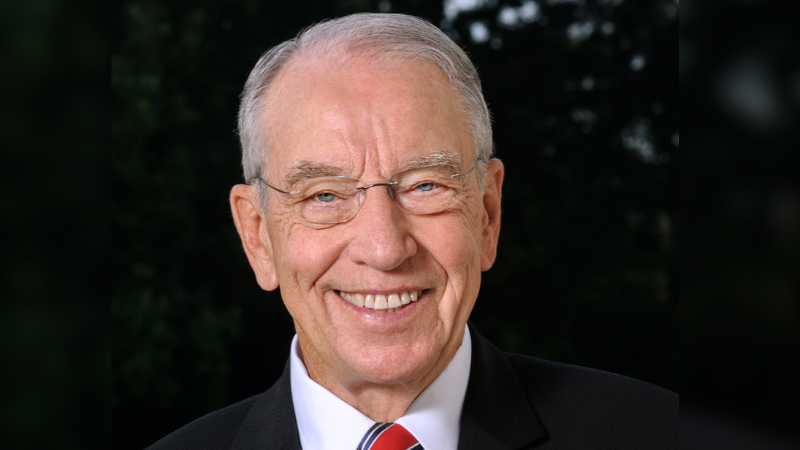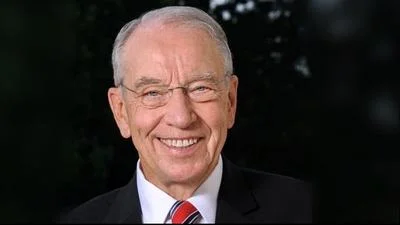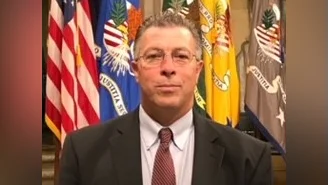Chuck Grassley | Chuck Grassley Official Website
Chuck Grassley | Chuck Grassley Official Website
Q: What are your most recent efforts in Congress to strengthen access to mental health care?
A: American society continues making strides to reduce the stigma long associated with mental illness. We have more work to do to raise awareness and expand access to behavioral health care services so people with mental health conditions can get treatment and get on the road to recovery. As a federal policymaker, I’ve worked to help remove the stigma of mental illness, particularly among farmers, veterans, new mothers and first responders and advanced measures to expand access to mental health services. In 2020, I led passage of the bipartisan Seeding Rural Resilience Act to help curb the rising rate of suicide in Rural America and pressed the Biden administration to implement the law. The law directed the USDA to set up a voluntary stress management program to train frontline employees to help detect stress among farmers with whom they do business. More than 95% of USDA employees in the Farm Production and Conservation Business Center have completed their training to carry out this important mission. As then-chairman of the Senate Finance Committee, I helped make mental telehealth services a permanent benefit under Medicare. I recognized how important this service is for seniors, especially for those living in rural areas who otherwise would need to drive hours to see a mental health care professional in person. In my longstanding efforts to improve maternal health care in Rural America, I reintroduced the bipartisanHealthy Moms and Babies Act to improve maternal care for moms and newborns. This includes using telehealth and community-based care efforts to improve access to mental and substance use disorder care. Earlier this year, I re-introduced legislation to help police, fire, emergency medical and 911 personnel cope with the stresses they incur responding to crisis situations. The Fighting Post-Traumatic Stress Disorder Act would establish mental health programs for first responders in communities of all sizes. Most recently, I’ve teamed up on legislation to ensure the Biden administration is following congressional intent on a federal law I supported called the MISSION Act of 2018. It was designed to ensure veterans’ timely access to non-VA providers. Last year, I pushed the Department of Veterans Affairs for answers after hearing from Iowa veterans frustrated by red tape and long wait lines to obtain community care. The Protecting VeteranCommunity Care Act focuses on veterans’ access to inpatient mental health and requires the VA to report to Congress on how veterans are using the community care program.
Q: Why is it important to raise awareness and talk openly about mental wellness?
A: Since 1949, Mental Health Awareness Month is observed in May to foster education and advocacy for our fellow Americans impacted by mental illness. Too many people manage their challenges in silence, coping with depression, anxiety, loneliness and hopelessness without a support system to help alleviate the burden. In communities and households across the country, loved ones and neighbors fight these battles alone. For too long, the stigma associated with mental illness kept people from sharing their feelings with others or seeking care from a medical professional. That’s why I keep up my efforts to reduce the stigma and remove barriers to care. That includes opening pathways for health care providers in rural areas, including mental health practitioners. I supported legislation enacted in 2020 that boosted funding for rural residency training and expanded Medicare-funded positions for an additional 1,000 graduate medical residency slots. The first 200 slots were announced earlier this year with three-quarters of the positions dedicated for primary care and mental health specialties.
According to the Centers for Disease Control and Prevention (CDC), 1 in 5 adults live with a mental health condition, such as depression, anxiety disorder or post-traumatic stress disorder. Mental health impacts productivity in the workplace and in school, affecting one’s daily life and quality of life. Recent studies show the damaging impact of school closures and pandemic-related isolation on millions of Americans, particularly young people. The CDC says more than 1 in 5 young people (ages 13-18) currently have or have experienced a seriously debilitating mental illness. What’s more, suicide was the second leading cause of death for people ages 10-14 and ages 20-34. I encourage Iowans to break the silence and misplaced embarrassment linked to mental illness. The U.S. Surgeon General recently issued an advisorystating thatthe U.S. is experiencing an epidemic of loneliness and isolation. Have conversations with your kids. Keep the lines of communication open with your friends and loved ones. Seeking treatment is the first step to recovery.
If you are someone you know is struggling or in a crisis, call or text 988, or chat 988lifeline.org. For veterans or a service member, you may also contact the Veterans Crisis Line by texting 838255. The 988 Suicide & Crisis Line provides free, confidential, around the clock support, 7 days a week, answered by a trained professional.
Original source can be found here.





 Alerts Sign-up
Alerts Sign-up